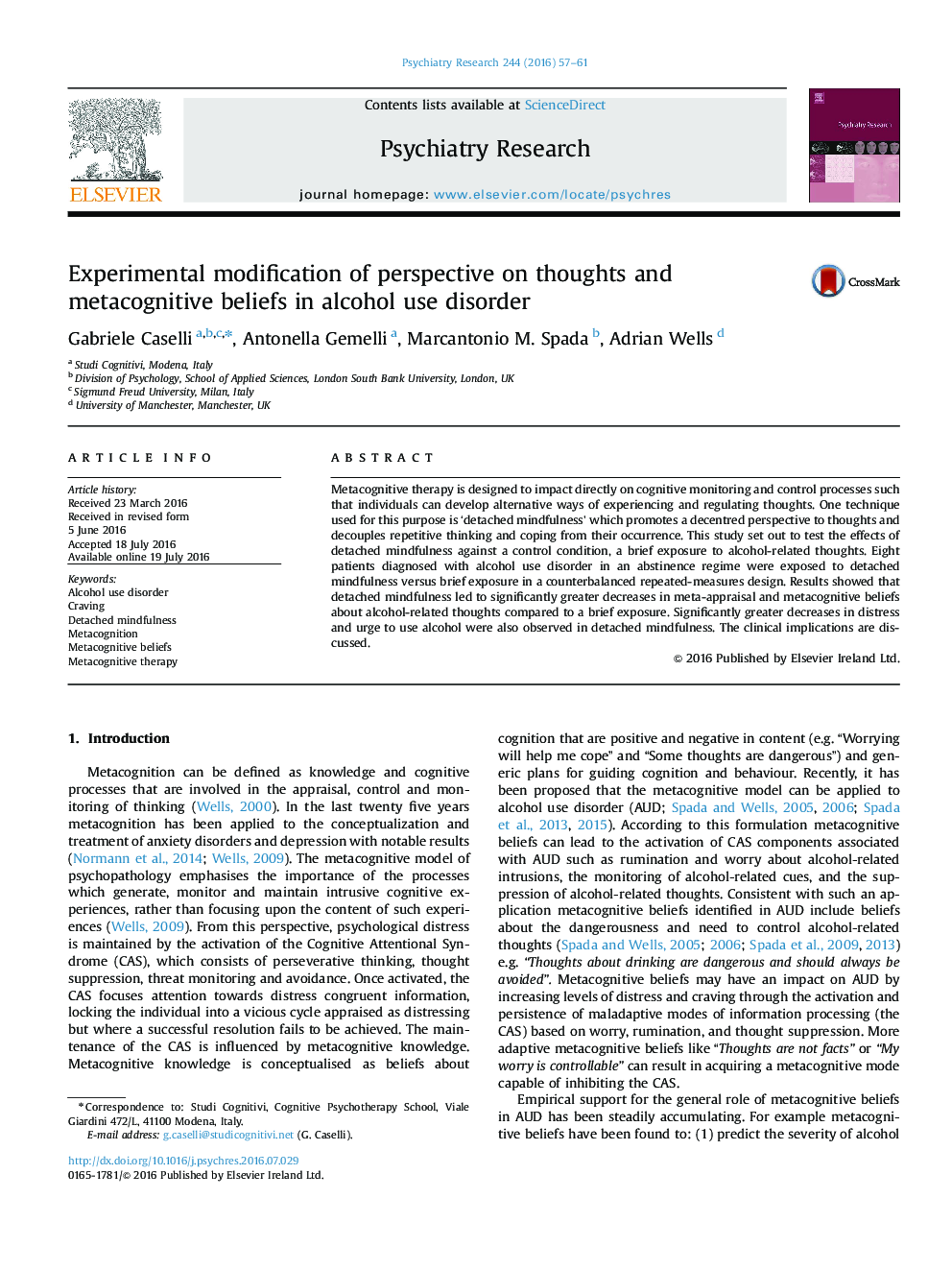| Article ID | Journal | Published Year | Pages | File Type |
|---|---|---|---|---|
| 332994 | Psychiatry Research | 2016 | 5 Pages |
•Detached mindfulness (DM) is a core technique of Metacognitive Therapy.•DM aims to change perspective on thoughts and metacognitive beliefs.•We tested the effects of DM versus a brief cue-exposure in Alcohol Use Disorder.•DM led to a decrease in meta-appraisal and metacognitive beliefs compared to cue-exposure.•Distress and urge to drink were also decreased by DM.
Metacognitive therapy is designed to impact directly on cognitive monitoring and control processes such that individuals can develop alternative ways of experiencing and regulating thoughts. One technique used for this purpose is ‘detached mindfulness’ which promotes a decentred perspective to thoughts and decouples repetitive thinking and coping from their occurrence. This study set out to test the effects of detached mindfulness against a control condition, a brief exposure to alcohol-related thoughts. Eight patients diagnosed with alcohol use disorder in an abstinence regime were exposed to detached mindfulness versus brief exposure in a counterbalanced repeated-measures design. Results showed that detached mindfulness led to significantly greater decreases in meta-appraisal and metacognitive beliefs about alcohol-related thoughts compared to a brief exposure. Significantly greater decreases in distress and urge to use alcohol were also observed in detached mindfulness. The clinical implications are discussed.
